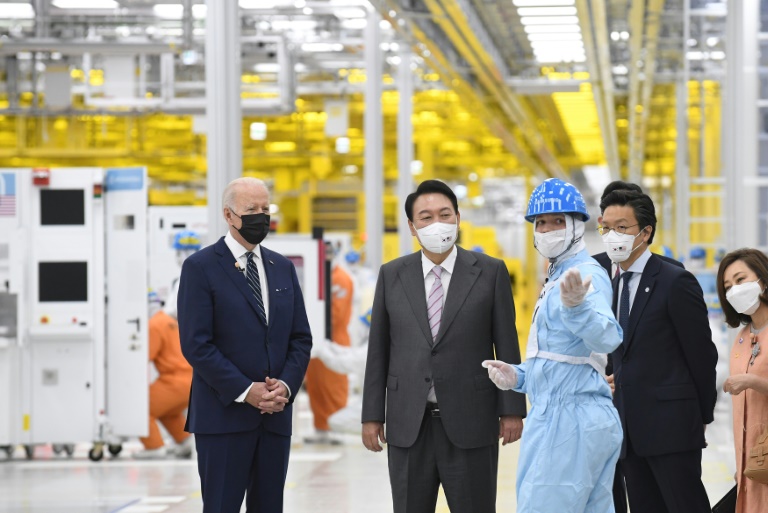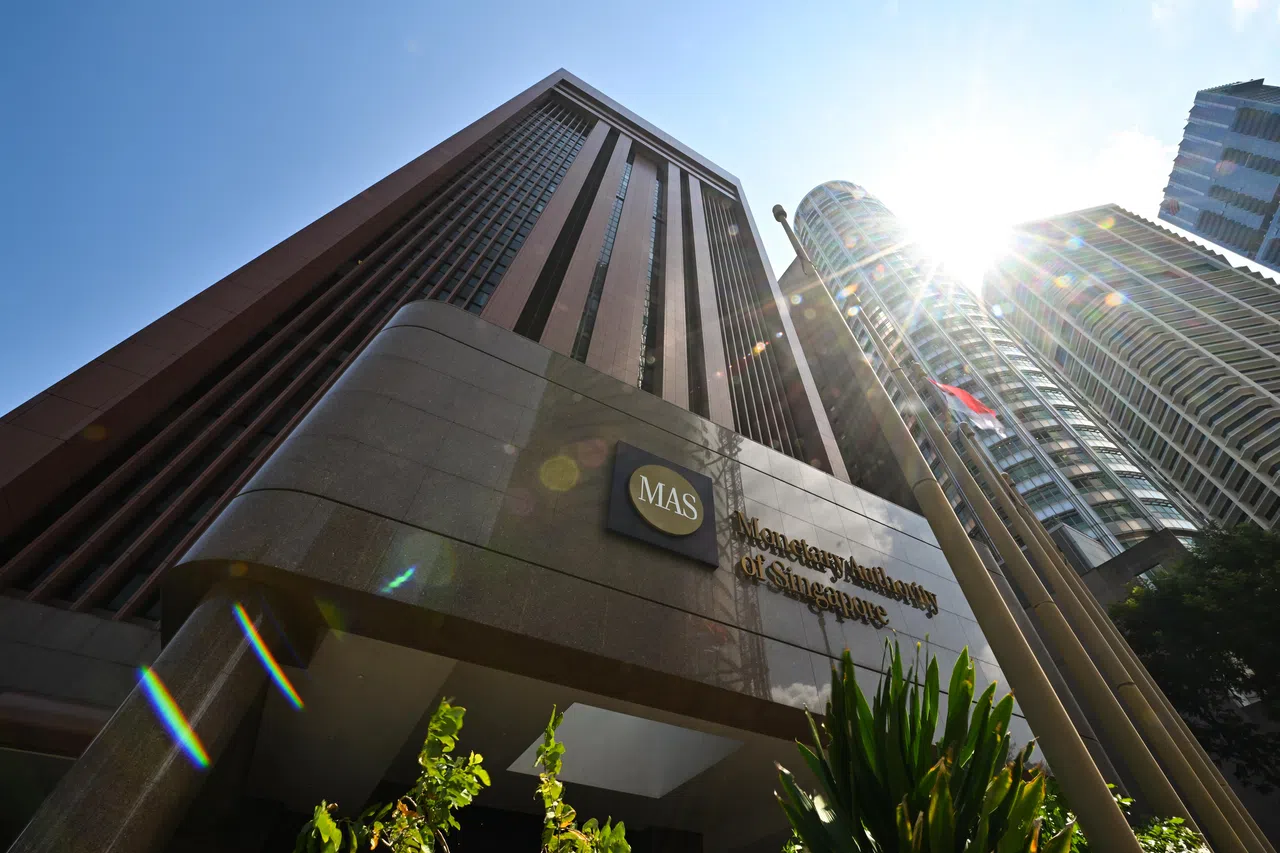South Korea will invest almost $7 billion in artificial intelligence by 2027 in an effort to become a global leader in cutting-edge semiconductors, President Yoon Suk Yeol said Tuesday.
The country is home to Samsung and SK Hynix — the world’s top two makers of memory chips, including the premium high-bandwidth memory (HBM) used in the hardware that powers AI.
The semiconductor industry is a crucial pillar of South Korea’s export-driven economy, and Yoon told a high-powered meeting of officials and tech sector executives that his administration wants the country to lead the world in AI chips.
“It is no exaggeration to say that the future of the semiconductor industry depends on AI,” Yoon said, according to his office.
“We will invest 9.4 trillion won ($6.94 billion) in the AI and AI semiconductor fields by 2027,” and set up a separate 1.4 trillion won ($1 billion) fund “to help the growth of innovative AI semiconductor companies”, he added.
Representatives from Samsung, SK Hynix, tech giant Naver and AI chip startup SAPEON attended the meeting, Yoon’s office said.
Semiconductors are the lifeblood of the global economy, used in everything from kitchen appliances and mobile phones to cars and weapons.
And demand for the advanced chips that power AI systems has skyrocketed thanks to the success of ChatGPT and other generative AI products.
Motivated by geopolitical concerns surrounding Taiwan and the larger US-China rivalry, Seoul and Tokyo are vying with Washington and major European nations to boost domestic chip production with massive investment and subsidies.
Currently, the AI chip market is dominated by Silicon Valley titan Nvidia, to which SK Hynix supplies HBM chips.
South Korea aims to become a world leader “in AI technology and go beyond memory chips to conquer the future AI chip market”, Yoon said at the Tuesday meeting.
“The semiconductor competition taking place now is an industrial war and an all-out war between nations.”
Yoon’s remarks came a day after Washington unveiled up to $6.6 billion in subsidies to Taiwanese giant TSMC as part of a drive to encourage chip firms to manufacture their most advanced products in the United States.
Earlier this month, Japan also announced up to $3.9 billion in subsidies to a chip venture as part of a plan to revive its semiconductor industry.
And China has been encouraging its domestic chip industry for years to reduce its reliance on Western technology, especially in response to US restrictions on the most advanced chips.
Semiconductors are South Korea’s leading export.
Semiconductor exports in March hit $11.7 billion, their highest level in almost two years and a fifth of South Korea’s total exports, according to figures released by the trade ministry.







